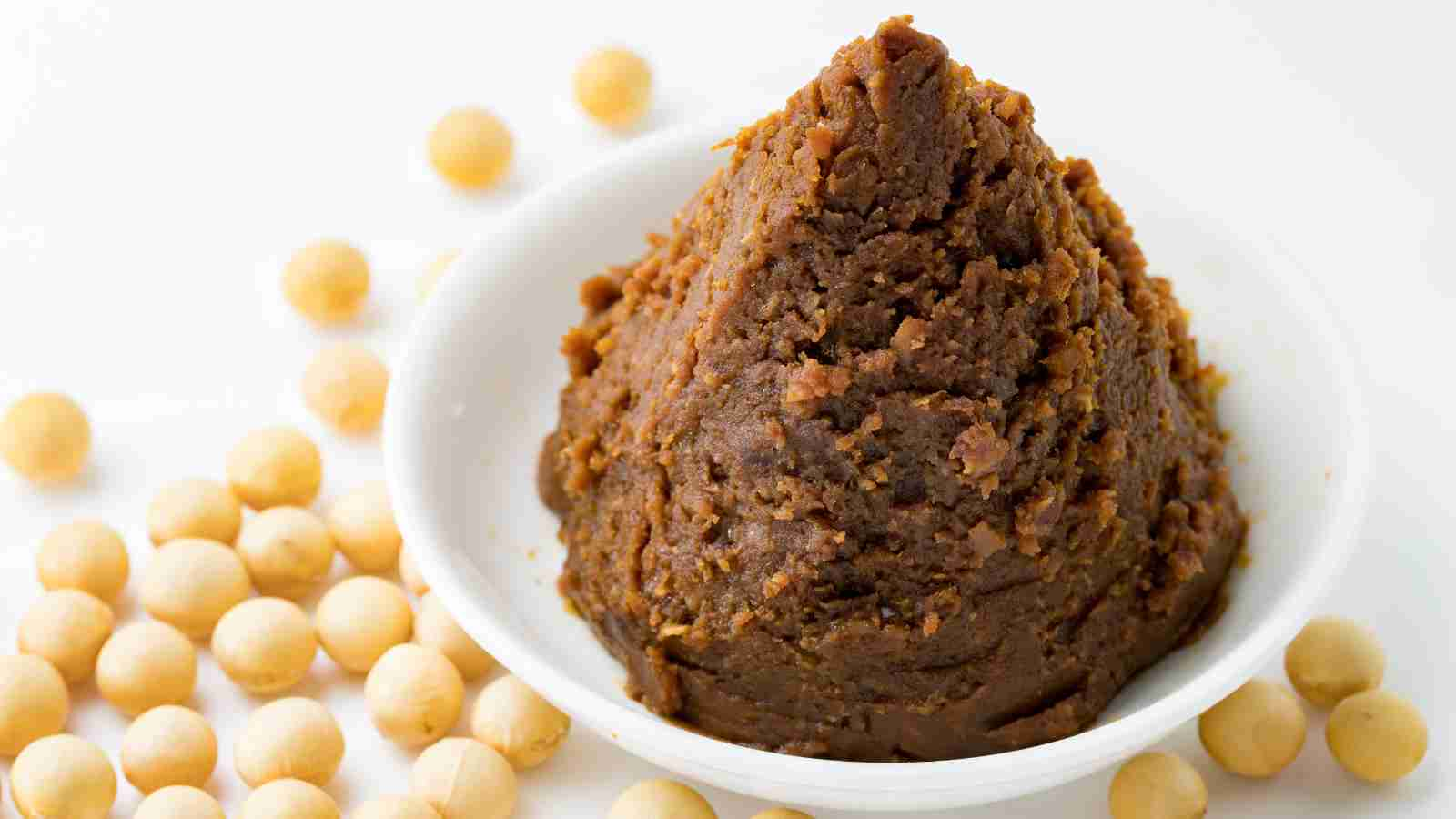When your stomach feels off, everything else follows. Bloating, gas, or that heavy feeling after eating can make your day uncomfortable. The good news is, your gut can bounce back fast with the right foods. Some everyday ingredients actually help your body digest better and ease that bloated feeling naturally. Here are 15 simple but powerful foods that can help your digestion feel calm, light, and balanced again. You don’t need fancy supplements or expensive drinks—just real food that works with your body.

Dark Green Vegetables

Leafy greens like spinach, kale, and broccoli bring plenty of fiber that helps move waste efficiently through your intestines. Their insoluble fiber adds bulk to your stool, reducing constipation and speeding up digestion. They’re also rich in magnesium, a mineral that relaxes muscles in your gut to help food move along more comfortably. Certain greens contain sulfoquinovose, a sugar compound that fuels beneficial gut bacteria, supporting overall gut balance. By adding greens to your plate, you’re giving your digestion both structure and strength.
Natto

Made from fermented soybeans, natto is one of Japan’s most gut-friendly foods. Its high probiotic content keeps your gut bacteria balanced, helping reduce bloating and improving nutrient absorption. You also get fiber and enzymes that encourage healthy digestion and regularity. Natto is especially beneficial for maintaining smooth bowel movements due to its natural fermentation process. Its unique flavor might be an acquired taste, but its benefits for your digestive health are worth it.
Fennel

Sweet and slightly licorice-flavored fennel acts like a natural stomach soother. Its fiber supports regular bowel movements by adding bulk to stool and easing constipation. Fennel also contains compounds that relax your digestive muscles, helping reduce bloating and cramping. Chewing on fennel seeds after meals is a common tradition in many cultures because of their gas-relieving properties. Whether roasted, raw, or brewed into tea, fennel is a simple way to keep your digestion calm and steady.
Kefir

Smooth and tangy kefir is loaded with probiotics that keep your gut bacteria in balance. These living cultures aid in breaking down lactose, making it easier to digest dairy products without bloating. Regular consumption of kefir helps crowd out harmful bacteria while promoting a healthier gut environment. It’s also known to improve digestion and nutrient absorption, especially for calcium and B vitamins. Swap your usual milk for kefir in smoothies to give your digestive system a friendly boost.
Chia Seeds

Tiny but powerful, chia seeds expand in liquid to form a gel-like texture that helps your stool move smoothly through your system. Packed with soluble fiber, they work as prebiotics, feeding the good bacteria that thrive in your gut. This gentle process supports regularity while keeping your digestion balanced and comfortable. They’re also loaded with omega-3s, which help reduce inflammation in your digestive tract. Sprinkle chia on your breakfast bowl or mix into yogurt for an easy way to support gut health.
Kombucha

Fizzing with beneficial bacteria, kombucha is a fermented tea that supports healthy digestion from the inside out. Its probiotics help maintain balance in your gut microbiome, improving digestion and nutrient breakdown. The natural acids formed during fermentation can also aid in detoxification and better stomach function. Kombucha is lightly effervescent, making it both refreshing and functional. Drinking a glass regularly can help keep your digestive system in check without feeling heavy.
Yogurt

Creamy and refreshing, yogurt is one of the easiest ways to introduce probiotics into your diet. The active cultures help strengthen your gut’s bacterial balance, easing issues like gas, constipation, and diarrhea. Yogurt also helps break down lactose, which makes it friendlier for those sensitive to dairy. Consistent intake supports smoother digestion and overall gut comfort. For best results, choose yogurt labeled with live and active cultures to ensure your gut gets the full probiotic benefits.
Apples

Crunchy and rich in pectin, apples support digestion by forming a gel-like substance in your intestines that helps regulate stool consistency. This soluble fiber feeds healthy gut bacteria, promoting smoother digestion and improved gut balance. Pectin also helps absorb excess water in the colon, reducing both constipation and diarrhea. Regular apple consumption has been linked to lower inflammation in your digestive tract. Whether eaten raw or baked, apples are a simple and effective way to keep your digestion on track.
Papaya

Bright and tropical papaya is packed with papain, a natural enzyme that helps your body break down proteins with ease. That enzymatic boost reduces bloating, gas, and constipation after meals. It’s especially helpful if your digestion slows down after eating meat-heavy dishes. Papaya’s fiber also encourages gentle bowel regularity and helps calm an irritated gut. Enjoy it fresh or blended into smoothies for a sweet way to support smoother digestion.
Whole Grains

Hearty whole grains like oats, quinoa, and barley are fiber-rich and keep your digestion running steadily. Their insoluble fiber adds structure to your stool, helping it pass through your intestines more easily. At the same time, the soluble fiber acts as food for good gut bacteria, improving your gut ecosystem. Whole grains also help stabilize blood sugar, which can prevent digestive discomfort caused by fluctuations. Switching from refined to whole grains can bring noticeable improvements in gut comfort and consistency.
Tempeh

Firm and nutty tempeh delivers probiotics and protein in one bite. Fermented from soybeans, it supports digestion by increasing beneficial bacteria and improving nutrient absorption. The fermentation process also reduces phytic acid, allowing your body to absorb minerals like iron and zinc more efficiently. Tempeh’s probiotic profile helps reduce bloating and promotes regularity. Incorporating it into stir-fries or sandwiches is a practical way to nourish both your gut and your muscles.
Beets

Vibrant beets promote healthy digestion by delivering both fiber and anti-inflammatory compounds. Their fiber helps your intestines stay active while also feeding beneficial bacteria. Beets’ natural nitrates improve blood flow, which can enhance nutrient absorption in your digestive tract. They also contain betaine, a compound that supports liver function and helps process fats more efficiently. Add them roasted, juiced, or grated raw for a colorful and gut-friendly meal addition.
Miso

Salty, savory miso is packed with probiotics from its fermentation process, helping balance your gut microbiome. These live cultures can ease symptoms like bloating and irregularity while supporting better digestion overall. Miso also provides essential minerals and amino acids that nourish your body while being gentle on your stomach. It’s most commonly enjoyed in soup, where the warmth can further soothe your digestive system. Incorporating miso into sauces or marinades gives you flavor and function in every spoonful.
Ginger

Pungent and aromatic ginger is famous for its ability to calm the stomach and ease discomfort. It speeds up the emptying of your stomach, helping reduce bloating and heartburn. Its active compound, gingerol, has natural anti-inflammatory effects that can soothe the digestive tract. You can use it fresh, steeped in tea, or added to meals for both flavor and relief. Ginger is especially helpful for motion sickness, nausea, and slow digestion after large meals.
Kimchi

Spicy and crunchy kimchi brings probiotics and fiber together for powerful digestive support. The fermentation process fills it with beneficial bacteria that keep your gut environment balanced and strong. Its fiber content also helps promote regular bowel movements and reduces bloating. The longer kimchi ferments, the more potent its probiotic benefits become. Pair it with rice, soups, or meats to bring both flavor and digestive comfort to your table.
Foods That Can Help Support Adrenal Function Naturally

Here are the best foods that provide key nutrients like B vitamins, vitamin C, magnesium, and amino acids that help reduce inflammation, stabilize blood sugar, and ease the adrenal load. They’re packed with the specific building blocks your adrenals need to function better and help you feel more stable, energized, and clear-headed.
20 Foods That May Help Reduce Brain Fog

You can help nourish your brain and support clearer thinking by choosing specific nutrient-dense options. These foods provide antioxidants, healthy fats, fiber, vitamins, and minerals that fight inflammation, protect neurons, and boost energy production. Here’s a list of 20 foods that may help reduce brain fog and give your brain exactly what it’s been craving. Incorporating them into your diet regularly may support better cognitive function and help you feel more mentally energized.
Tamara Tsaturyan is the owner and writer of Thriving In Parenting, a website focused on providing simple tips for busy parents — easy and healthy recipes, home decor and organization ideas and all things P A R E N T I N G.

Share Your Thoughts!
I love to know your thoughts, make sure to comment below to start a discussion! You can also follow me on your favorite social network below.